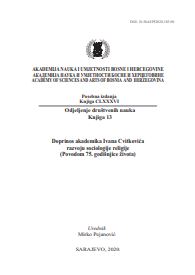
DOPRINOS AKADEMIKA IVANA CVITKOVIĆA RAZVOJU SOCIOLOGIJE RELIGIJE (POVODOM 75. GODIŠNJICE ŽIVOTA)
1. Sociolozi o Cvitkovićevom doprinosu sociologiji religije 2. Kritičari o knjigama Ivana Cvitkovića 3. Bibliografija radova
More...We kindly inform you that, as long as the subject affiliation of our 300.000+ articles is in progress, you might get unsufficient or no results on your third level or second level search. In this case, please broaden your search criteria.

1. Sociolozi o Cvitkovićevom doprinosu sociologiji religije 2. Kritičari o knjigama Ivana Cvitkovića 3. Bibliografija radova
More...
Review of: Ivan Cvitković "Društvena misao u svetim spisima".
More...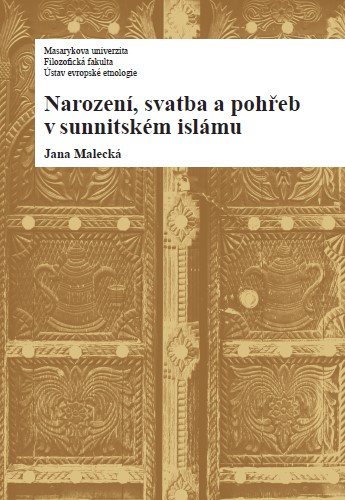
The publication deals with Sunni Muslim traditions connected with birth, wedding, and funeral. It focuses on Syria, Jordan, Israel, Palestine, and the Czech Republic. It describes traditions of Sunni Muslims living in mentioned Arab countries along with traditions of the Syrians, Jordanians, Palestinians living in the Czech Republic, and Czech converts as well. Selected traditions of these two different cultures (Arab Muslims and Czech Muslims) are compared so we can note the differences and similarities between their bearers who are living in various cultural and religious areas.
More...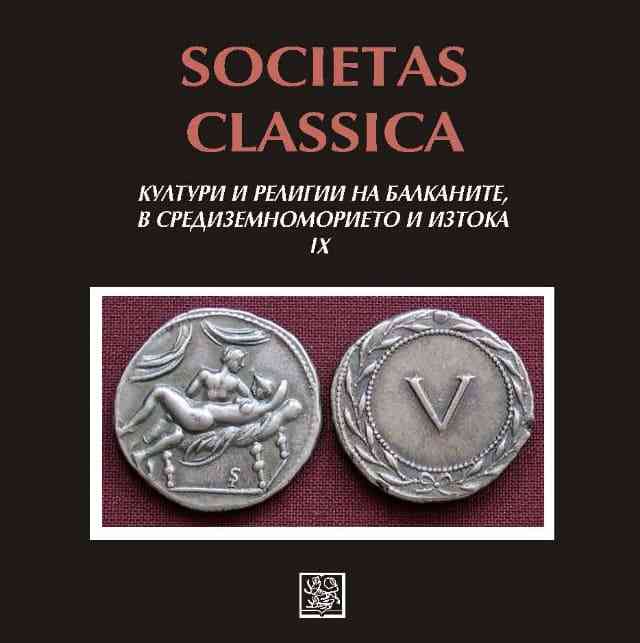
𝑆𝑜𝑐𝑖𝑒𝑡𝑎𝑠 𝐶𝑙𝑎𝑠𝑠𝑖𝑐𝑎 is a multilingual collection of papers presented at the international scientific conference that has been organized by the Department of Classical and Eastern Languages and Cultures of St. Cyril and St. Methodius University of Veliko Tarnovo (Bulgaria) since 2002. Until 2015, the conference was held annually. Since 2018, it is held once every two years. St Cyril and St Methodius University Press issues the collection within the Dr. Nicola Piccolo series. The wide range of topics and the opportunity for authors to submit their academic publications in the original language attracts researchers from all over the world.
More...
The influence of radical islam is spreading not only in the Middle East but also around the rest of the world. With the surge of the terrorist attacks in Europe, the Middle East, Africa and USA, commited in the name of radical organizations such as Islamic State and Al Qaeda, there is an urgent need of finding a solution to counter radicalization among the muslim population and converts around the world. In this paper the roots of the modern doctrine of the radical islam are explained as well as the reason why sufism can be used as an instrument to fight the radicalization in islam.
More...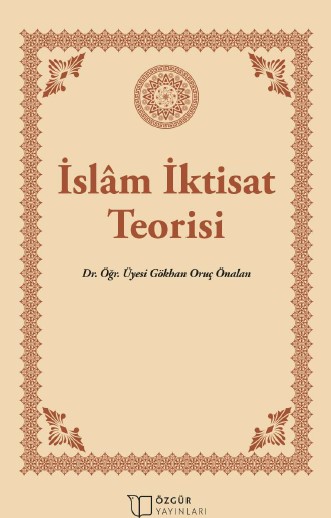
Verse 27 of Surat al-Shoora clarifies the criteria by which the blessings and opportunities in the life of this world are distributed among the servants, and thus helps the minds to correctly grasp the message emphasized in verse 26, that Allah gives more of His bounty to His servants who believe and do good deeds. If Allah had given all people the blessings and resources such as intelligence, health, talent, etc. abundantly and equally in this world, there would be no unity, stability and order on earth. People would not be concerned about developing their skills, there would be no regular working life, no search for a balance and system (for example, the science of economics) for the sake of employment and the sharing of material opportunities, and as a result, civilizations and states would not have been established. When we interpret the message of verse 41 of Surat al-Rûm in a general framework within the framework of the economic problems of today's world, we come to the fact that the cause of the economic problem (mischief) is man and the capitalist economic system that makes man think about what he needs and not what he should think about the distribution of the blessings (justice in distribution). Therefore, if an economic understanding centered on prosperity and felah, that is, the economic principles of Islam, takes its place in people's lives, there will be no trace of these problems.
More...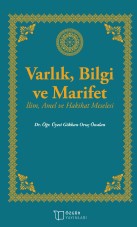
The creation of the human being is in two parts, the body and the soul. As verse 26 of Surat al-Hijr points out, the body is in the process of physical and biological change starting from the soil as a work and manifestation of Allah's attribute of creation. The soul is as much in need of spiritual power as the body is in need of necessities. Man wants to recognize and know the Divine will that created him, to comprehend the reason for the creation of this world and to learn the purpose of his creation in this world. Islam is the only religion in the sight of Allah (swt) that was sent to all mankind, whose rule will transcend the ages and last until the Day of Judgment, the religion of Tawheed, which was preached by the first human being and the first Prophet, Hz Adam (as), and the continuation (abrogation) of the following celestial religions. In the year 610 A.H., Jabrâil (as) conveyed his mission to our Prophet Muhammad (saw), and thus the Messenger of Allah (saw) was appointed by Allah (swt) as our last and greatest guide. The purpose (maqāṣid al-sharī'a) of the religion's theological, practical and ethical rulings is to ensure that the servants attain happiness in this world and the Hereafter, and to gain the pleasure of Allah (swt) in all their behaviors. In verse 10 of Surat al-Fāṭir, the expression "beautiful words" refers to knowledge, thus drawing attention to the fact that deeds are complementary to knowledge. Thus, the path to maqāṣṣud al-shari'a is through knowledge and deeds, and knowledge is the most virtuous of deeds. The purpose of knowledge is to act upon it.
More...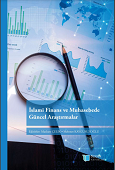
As is well known, interest is an economic fact that has been known and practiced since time immemorial and is subject to positive or negative assessments. This fact, which has not lost its significance throughout the history of the economy, is still considered one of the most important indicators that distinguish political and economic regimes. Due to this importance, since its inception, interest has been among the research topics of philosophers and economists, especially celestial religions. Islam, the last of the heavenly religions, has taken up this problem, which is of great interest to society, in a form of law based on its own moral laws, and has taken a religious-legal approach to interest. Thus, the Holy Qur’an states: “O you who believe! Do not consume one another’s property illicitly, and do not kill yourselves, except by mutual consent. Surely Allah is Merciful to you. Whoever commits aggression and oppression, We will cast him into the Fire of Hell. That is easy for God. If you avoid the major sins, We will cover your sins and admit you to a beautiful place. “(Surat an-Nisa, verses 29-31) From this point of view, scientific-research work is relevant from the point of view of research of scientific approaches in the importance of interestbased system approaches in the modern management system.
More...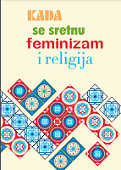
Ovaj kratki esej počinjem izrekom (hadis) poslanika Muhammeda zbog toga što naglašava obavezu vjernika, vjernica i općenito ljudi da ustanu protiv nepravde bilo koje vrste, uključujući i nepravdu prema ženama. Danas je diskriminacija žena prisutna u svim društvima, samo su načini i oblici obespravljenosti različiti ovisno o kulturološkom kontekstu. Baš zbog toga je važno različitim argumentima i resursima, pa i religijskim, podržati feminističke napore žena i muškaraca. Iako mnogi/e vjernici/e, kao i oni/e koji/e ne vjeruju, misle da feminizam i religija nemaju ništa zajedničko te da je njihovo povezivanje oksimoron, iskustva i društvene prakse u mnogim zemljama pokazuju da to nije tačno. I feminizam i religija traže da se poštuje dignitet svake osobe – i muškarca i žene – te naglašavaju nužnost slobode izbora i jednakih mogućnosti za ispoljavanje talenata i intelektualnih potencijala.
More...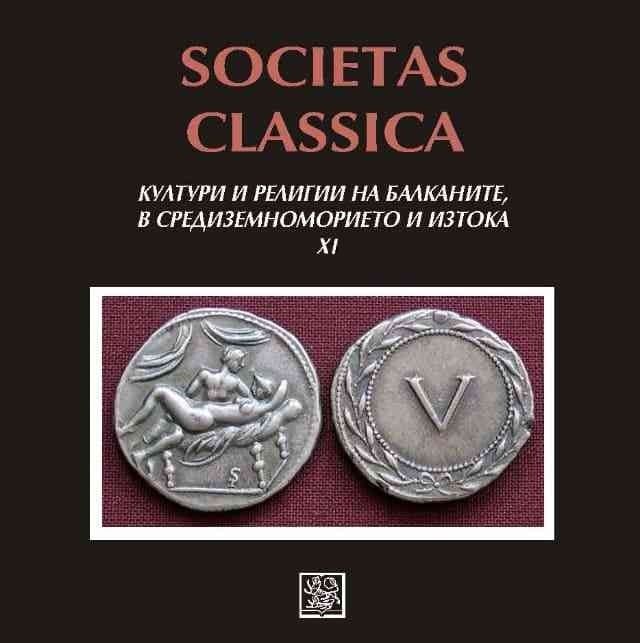
The present article deals with a contradiction that often makes the understanding of Muslim law and practice hotly debatable. On the one hand, alcohol and its consumption are strictly forbidden (ḥarām) in Islam. On the other hand, abundant evidence from medieval sources indicates that wine was a highly valued and socially accepted substance serving as the lyrical subject of beautiful poems some of which are considered among the finest literary forms in languages, such as Arabic and Persian. This study foregrounds the contradiction between religious norm and social practice that has raised vivid discussions among both Muslim religious scholars and Western Islamicists. The analysis thus aims to frame the issue by delineating the major Islamic scriptural sources and legal positions against the backdrop of selected (post-)modern conceptualizations, such as the approach recently suggested by Shahab Ahmed.
More...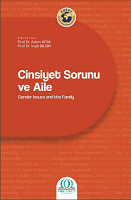
Throughout the extensive chronicles of human existence, homosexuality and gender reassignment, which were until recently seen as marginal, individual phenomena and were considered perversions by mainstream medicine, have gradually gained social, legal, and medical recognition over the past five decades, primarily in Western societies. Currently, homosexuality has ceased to be a social phenomenon and has become a social movement. Moreover, individuals, organizations, and states that do not embrace this condition are under global pressure. Based on fundamental sociological knowledge, the family, which serves as the bedrock of society and plays a crucial role in imparting social norms to individuals, has faced persistent challenges such as unmarried partnerships, postponed marriages, childlessness, and rising divorce rates. The increasing prevalence of homosexuality has exacerbated the challenges faced by the institution of the family. Not only is there a lack of a traditional family structure, but social conventions are completely reversed. Religion is often regarded as a means to avert the impending social apocalypse that humanity has brought upon itself. However, Protestant churches in the Western world have increasingly succumbed to the influence of LGBT advocacy groups. Consequently, it has begun to endorse the prevailing circumstances from a religious standpoint, permitting the appointment of homosexual priests and the solemnization of same-sex marriages within the church. The remaining prominent religions worldwide, particularly the Catholic Church and Islam, are significantly influenced by the explicit or concealed actions of LGBT advocacy groups. Today in Turkey, a significant number of religious folks, particularly among the younger generation, perceive homosexuality as a matter of personal volition and contend that religion should not meddle in such matters. This study seeks to examine the aforementioned issue from both a theoretical and practical standpoint. The compilation comprises writings by scholars specializing in diverse disciplines, including psychology, education, sociology of religion, religious education, and Islamic law
More...
Yüce Allah evreni yaratmış, orada belli yapılar ve ilişki ağları oluşturmuştur. Evren içerisinde akıllı ve iradeli yarattığı insanı, erkek ve kadın cinsiyeti olarak belirlemiş, aralarında tesis edilen evlilik bağıyla insanlığın varlığını ve sürekliliğini sağlamayı murat etmiştir. Diğer bir deyişle Yüce Allah insanı bir kadın ve bir erkek olarak yaratmış, insan neslinin bu iki zıt cinsiyetin hukuk çerçevesinde birlikteliğinden doğacak çocuklarla devam etmesini dilemiştir.
More...
Allah Teâlâ insanın dünyaya gelmesi, sağlıklı ve mutlu bir şekilde büyüyüp yetişmesi, huzurlu ve güvenli bir toplum oluşturması, imtihan edilmesi için ilk insandan itibaren nikâh akdi altında belli şartlarla aile kurumunu var etmiştir. Aile içerisinde de insanı kendi başına bırakmamış, karı-koca, anne-baba, kız-oğul gibi cinsiyete ve onda var edilen özelliklere uygun roller ve bunlara bağlı hak ve sorumlulukları ayrıntılı bir şekilde belirlemiştir. Bu düzenin var olması ve devam etmesi için de ilk insandan itibaren insanı kadın ve erkek iki farklı cinsiyette ve farklı özellikte yaratmıştır. Kur’ân-ı Kerim’de çeşitli vesilelerle pek çok ayetle buna vurgu yapmıştır.
More...
Rahman ve Rahim olan Allah’ın Adıyla Kıymetli başkanım ve hocalarım, muhterem hazirûn, Öncelikle sizi Allah’ın selamıyla selamlıyorum. Konuşmalarıma başlamadan önce Filistinli kardeşlerimizi anmak istiyorum. Masum insanların vefat etmesine, evlerinin yıkılmasına ve bir halkın yerinden edilmesine neden olan bu insanlık trajedisinin ve savaş suçunun bir an önce bitmesi ve Filistin halkının felaha kavuşmasını, bir daha aynı şeyleri yaşamadan mutlak zafere ulaşmasını Rabbimden niyaz ediyorum. Sempozyum davetiniz için organizasyon ekibine teşekkür ederim. Bu tür bilimsel etkinlikleri düzenlemek yorucu olmakla birlikte farklı disiplinlerden araştırmacıların bir araya gelerek bilgi ve deneyimlerini paylaştıkları, yeni fikirler ürettikleri önemli platformlardır. Özellikle cinsiyet meselesi, disiplinler arası bir şekilde ele alınması gereken hassas ve önemli bir konudur. Bu programın da böyle bir platform olmasını ve konuyla ilgili çalışmalara önemli katkılar sunmasını diliyorum. Sempozyumun başarılı bir şekilde gerçekleşmesinde emeği geçen herkese, özellikle bu programı düzenleyen KURAV’a ve Uludağ İlahiyat’a tekrar teşekkür ederim.
More...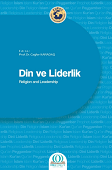
The Turkish term “lider” is derived from the English word “leader”, which denotes the concept of leading or advancing. This term has been adopted into Turkish with a similar meaning. In Turkish usage, the term “lider” often implies the concept of “önder” (guide), and similarly, “liderlik” is associated with “önderlik” (guidance). The introduction of various adjectives has expanded and diversified the application of the term. For example, terms such as religious leader, political leader, community leader, transformational leader, and charismatic leader illustrate this broad usage. In the context of the “Religion and Leadership Workshop” organized by the Qur’an Research Foundation (KURAV), the term “lider” should primarily be interpreted as referring to a “religious leader” or a “leader in religion”. However, it is important to recognize that a religious leader may also exhibit social, cultural, charismatic, and transformative attributes, thereby integrating aspects of political, social, or charismatic leadership. The ideal framework for such a leadership, as exemplified by prophets, represents an aspirational model, though real-life leaders may vary in their alignment with this ideal. This dimension of leadership is also explored in our workshop through papers, discussions, and contributions when they touch on the realities and contemporary situations. The Religion and Leadership Workshop features four principal papers, including an inaugural conference, and the final volume of proceedings encompasses a total of five papers. These are Yalçın Akdoğan’s “Religion and Leadership” (Inaugural Conference); Yusuf Şevki Yavuz’s “Leadership in the Qur’an”; Adem Apak’s “Muhammad (pbuh) and His Leadership”; Bayram Ali Çetinkaya’s “Turkey-Centered Politics in Contemporary Islamic Thought and Leadership Quests”, and Mehmet Ali Büyükkara’s “Religious Leadership in Turkey”. In addition to these papers, brief discussions contributed by Adnan Demircan, Ahmet Yaman, Bünyamin Erul, Yusuf Şevki Yavuz, and Cağfer Karadaş provide further insights. The workshop is also enriched by individual assessments from participants, including Mustafa Gencer’s “Ottoman Modernization in the Tanzimat and Meşrutiyet Periods”; Mustafa Tekin’s “Religion in Leadership and Leadership in Religion”, and Şaban Ali Düzgün’s “Process Analysis of Modernization from the Ottoman Empire to the Turkish Republic”. These contributions collectively offer valuable perspectives and enhance the scholarly discourse of the event.
More...
Liderlik açısından Kur’ân-ı Kerim incelendiği takdirde Allah’ın, yer kürede yarattığı andan itibaren insanların bir liderin yönetimi altında yaşamaları gerektiğini, ataları Hz. Âdem’i peygamberlikle görevlendirmesinden anlamak mümkündür. Nitekim bu husus meâlen şöyle beyan edilmiştir: “Şüphesiz Allah, Âdem’i, Nûh’u, İbrahim ailesini (soyunu) ve İmran ailesini (soyunu) birbirinden gelmiş birer nesil olarak seçip âlemlere üstün kıldı. Allah, her şeyi hakkıyla işitendir, hakkıyla bilendir”. Bu ilâhî beyanda geçen “seçme” peygamber olarak seçmek anlamına gelir ki bütün peygamberlerin insanlara lider ve yönetici yapıldıkları ise meâlen şöyle belirtilmiştir: “Onları (peygamberleri) bizim emrimizle doğru yolu gösteren önderler (liderler) yaptık ve kendilerine hayırlar işlemeyi, namazı dosdoğru kılmayı, zekâtı vermeyi vahyettik. Onlar sadece bize ibadet eden kimselerdi”. Âyetin metninde geçen “eimme” kelimesi önder anlamındaki “imâm” sözcüğünün çoğuludur, bilindiği gibi daha sonra telif edilen kelam literartüründe insanlara önderlik yapan ve onları yöneten devlet başkanı bu tabirle ifade edilmiştir. Kur’ân-ı Kerim’de liderliği ifade etmek için kullanılan başka bazı kelimelerin daha bulunduğunu söylemek mümkündür, bunlar da mülk ve halife kavramlarıdır.
More...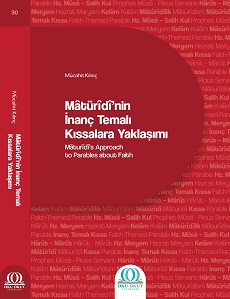
In this study, Māturīdī’s interpretation of the parable and his approach to faith-themed parables in particular the parables of ‘Prophet Mūsā and The Pious Servant’, ‘Hārūt and Mārūt’ and ‘Hazrat Maryam’ were examined. In the study, it is aimed to determine how Māturīdī analyzes faith-themed parables. In the introduction part of the study, which consists of an introduction and two main parts, information is given about the subject, importance, purpose, method and sources of the research. In the first part, topics such as the concept of parable, the historical reality of parables, and repetition in parables are discussed in order to reveal Māturīdī’s approach to the parables of the Qur’ān. In the second part, his theological approach to the parables of ‘Prophet Mūsā and Pious Servant’, ‘Hārūt and Mārūt’ and ‘Hazrat Maryam’ is examined in detail. As a result of the study, it has been determined that Māturīdī used parables as a source on matters of faith. In addition, it has been concluded that the theological explanations he made are compatible with the kalām system. In the interpretation of the parable of Prophet Mūsā - Pious Servant, he emphasized the attribute of knowledge of Allāh. While explaining the parable of Hārūt - Mārūt, he discussed the ontological reality of magic. In the parable of Hazrat Maryam, he touched on the subject of karāmāt by emphasizing tawḥīd.
More...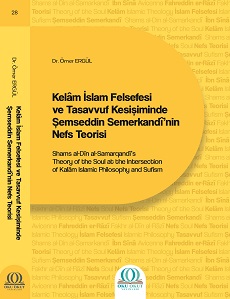
This study examines how Muhammad b. Ashraf al-Samarqandī deals with the classical theological theory asserting that the soul is a obscure body. The theory of the soul by Samarqandī represents a resistance against the abstract theory of the soul that began with Rāghib al-Isfahanī and al-Ghazalī and became widespread in later theological discourse. Another aspect of Samarqandī’s theory of the soul is his ability to blend certain elements of the abstract soul theory with the theory of obscure body. The theory of the soul by Samarqandī has emerged in the context of debates shaped by Fakhr al-Dīn al-Rāzī’s theory of the abstract soul and his criticisms regarding related issues. In this context, the study aims to elucidate the ground upon which al-Rāzī problematized issues related to the theory of the soul and to uncover the accumulation produced by Samarqandī on this basis. In this research, it has been observed that Samarqandī developed his system by reinforcing it with the following aspects, which are extensions of the concept of the abstract soul theory: bodily and spiritual perfection, distinction between sensory and rational perception, the view of internal senses located in the brain, and details regarding theoretical-practical intellect distinction. Furthermore, Samarqandī integrated Sufi elements related to asceticism and spiritual discipline into the theory in the context of the soul’s perfection. He accepts situations such as miracles and karamat as outcomes of spiritual attainment and endeavors to explain them on a rational basis as ordinary occurrences. It has been determined that Avicenna’s work, al-Isharat wa al-Tanbihat, holds a significant place at the core of Samarqandī’s synthesis attempt. On the other hand, it has been concluded that Samarqandī maintains general theological principles such as there is no eternal and abstract entity besides Allah, Allah is the agent who accomplishes His acts through His will, there is no necessary causality in the world, and the afterlife existence will involve a corporeal life in the unity of soul and body.
More...